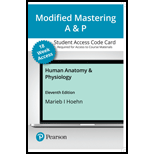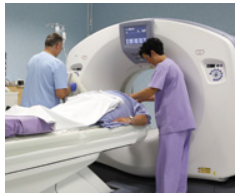
44-Year-Old Male with Skull Fracture
William Hancock, 44, fell from the scaffolding at a construction site. When emergency personnel arrived, they found him unconscious but with stable vital signs. As paramedics placed him on a backboard to stabilize his head, neck, and back, they noted watery blood leaking from his right ear. In the hospital, Mr. Hancock regained consciousness and was treated for deep lacerations on his scalp and face. Head CT scans revealed both longitudinal and transverse fractures of the right petrous temporal and sphenoid bones that extended through the foramen rotundum and foramen ovale.

The following observations were recorded on Mr. Hancock’s chart on admission:
•Complete loss of hearing in the right ear.
•Paresthesia (sensation of “pins and needles’) at the right corner of the mouth, extending to the lower lip and chin.
•Numbness of the right upper lip, lower eyelid, and cheek.
•Right eye turned slightly inward when looking straight ahead. Diplopia (double vision), particularly when looking to the right.
1. NCLEX-STYLE Which of the following choices best describes the fluid leaking from Mr. Hancock's ear and the cause of that leakage?
a. Blood and mucus are leaking because the sphenoid bone is fractured.
b. Blood and mucus are leaking because the petrous part of the temporal bone is fractured.
c. Blood and cerebrospinal fluid are leaking because the petrous part of the temporal bone is fractured.
d. Blood and sweat are leaking because the sphenoid bone is fractured and because his temperature was elevated.
Want to see the full answer?
Check out a sample textbook solution
Chapter 13 Solutions
HUMAN ANATOMY + PHYSIOLOGY + MAST AP
- Explain in a small summary how: What genetic information can be obtained from a Punnet square? What genetic information cannot be determined from a Punnet square? Why might a Punnet Square be beneficial to understanding genetics/inheritance?arrow_forwardIn a small summary write down:arrow_forwardNot part of a graded assignment, from a past midtermarrow_forward
- Noggin mutation: The mouse, one of the phenotypic consequences of Noggin mutationis mispatterning of the spinal cord, in the posterior region of the mouse embryo, suchthat in the hindlimb region the more ventral fates are lost, and the dorsal Pax3 domain isexpanded. (this experiment is not in the lectures).a. Hypothesis for why: What would be your hypothesis for why the ventral fatesare lost and dorsal fates expanded? Include in your answer the words notochord,BMP, SHH and either (or both of) surface ectoderm or lateral plate mesodermarrow_forwardNot part of a graded assignment, from a past midtermarrow_forwardNot part of a graded assignment, from a past midtermarrow_forward
- Surgical Tech For Surgical Tech Pos CareHealth & NutritionISBN:9781337648868Author:AssociationPublisher:CengageUnderstanding Health Insurance: A Guide to Billin...Health & NutritionISBN:9781337679480Author:GREENPublisher:Cengage
 Fundamentals of Sectional Anatomy: An Imaging App...BiologyISBN:9781133960867Author:Denise L. LazoPublisher:Cengage Learning
Fundamentals of Sectional Anatomy: An Imaging App...BiologyISBN:9781133960867Author:Denise L. LazoPublisher:Cengage Learning  Medical Terminology for Health Professions, Spira...Health & NutritionISBN:9781305634350Author:Ann Ehrlich, Carol L. Schroeder, Laura Ehrlich, Katrina A. SchroederPublisher:Cengage Learning
Medical Terminology for Health Professions, Spira...Health & NutritionISBN:9781305634350Author:Ann Ehrlich, Carol L. Schroeder, Laura Ehrlich, Katrina A. SchroederPublisher:Cengage Learning





